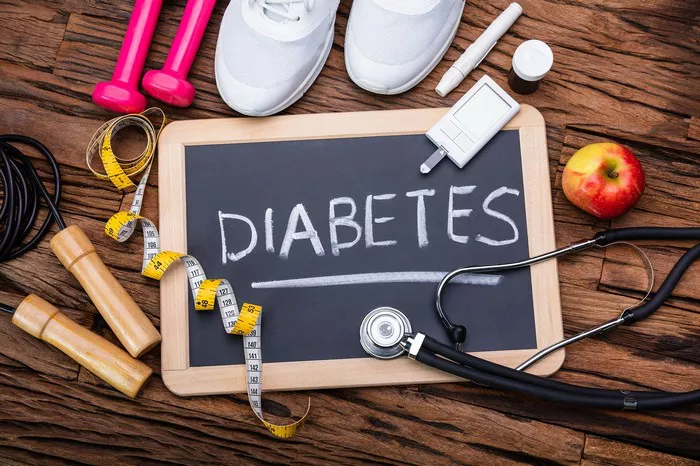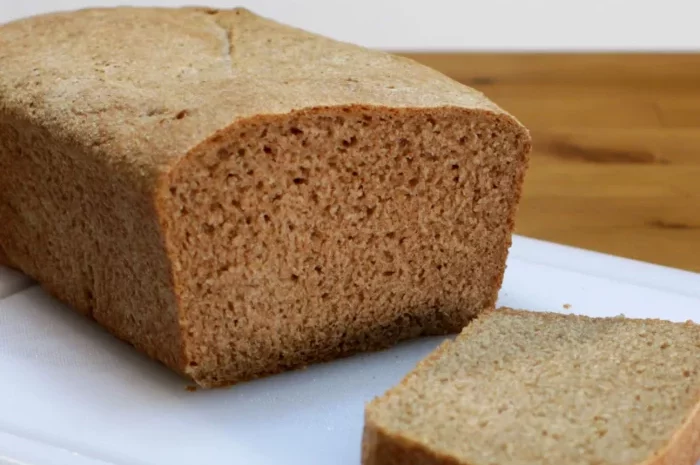Insulin resistance is a common condition where the body’s cells become less responsive to the hormone insulin, leading to elevated blood glucose levels. This condition can precede the development of type 2 diabetes and is associated with other metabolic disorders such as obesity, hypertension, and dyslipidemia. Diet plays a critical role in managing insulin resistance. Understanding what to eat can help mitigate its effects, improve insulin sensitivity, and prevent progression to type 2 diabetes.
Understanding Insulin Resistance
Insulin is a hormone produced by the pancreas that allows cells to absorb glucose from the bloodstream to use for energy or store for later use. In insulin resistance, cells in muscles, fat, and the liver respond poorly to insulin and cannot easily take up glucose from the blood. Consequently, the pancreas produces more insulin to help glucose enter cells. Over time, this can lead to higher insulin levels (hyperinsulinemia) and elevated blood sugar levels, potentially progressing to type 2 diabetes if not managed effectively.
The Role of Diet in Managing Insulin Resistance
Diet is a cornerstone in managing insulin resistance. The primary goals are to maintain stable blood sugar levels, improve insulin sensitivity, and reduce the risk of developing type 2 diabetes. This involves making informed choices about carbohydrates, fats, and proteins, as well as paying attention to portion sizes and meal timing.
Carbohydrates: Quality Over Quantity
Carbohydrates have a direct impact on blood sugar levels. Therefore, focusing on the quality and type of carbohydrates consumed is essential.
- Choose Complex Carbohydrates: Opt for whole grains like brown rice, quinoa, and oats. These have a lower glycemic index (GI) compared to refined grains, meaning they raise blood sugar levels more slowly.
- Incorporate Fiber-Rich Foods: Foods high in dietary fiber, such as vegetables, legumes, fruits, and whole grains, help slow glucose absorption, reducing blood sugar spikes. Aim for at least 25-30 grams of fiber per day.
- Limit Refined Carbohydrates and Sugars: Reduce intake of refined grains (like white bread and pasta) and sugary foods (like candies, pastries, and sugary drinks). These can cause rapid spikes in blood sugar and contribute to insulin resistance.
- Monitor Carbohydrate Intake: While the total amount of carbohydrates is important, spreading carbohydrate intake throughout the day can help manage blood sugar levels more effectively. Aim for consistent carbohydrate intake at each meal.
Healthy Fats: Focus on Quality
Not all fats are created equal. While managing insulin resistance, it’s crucial to include healthy fats and avoid those that can exacerbate the condition.
- Include Unsaturated Fats: Monounsaturated and polyunsaturated fats, found in olive oil, avocados, nuts, seeds, and fatty fish, can help improve insulin sensitivity.
- Omega-3 Fatty Acids: These anti-inflammatory fats, found in fish like salmon, mackerel, and sardines, as well as in flaxseeds and walnuts, are particularly beneficial.
- Avoid Trans Fats: Found in many processed and packaged foods, trans fats increase the risk of insulin resistance and cardiovascular disease. Always check food labels for trans fats or partially hydrogenated oils.
- Limit Saturated Fats: While some saturated fat is acceptable, it’s best to limit intake from sources like fatty cuts of meat, full-fat dairy products, and certain oils (coconut and palm oil).
Protein: Balance and Variety
Protein is crucial for maintaining muscle mass and can help with satiety, which is beneficial for weight management.
- Choose Lean Proteins: Opt for lean meats (chicken, turkey), fish, eggs, dairy products (preferably low-fat), legumes, and plant-based proteins (tofu, tempeh).
- Plant-Based Proteins: Incorporating more plant-based proteins can provide additional fiber and beneficial nutrients that are often lacking in animal proteins. Beans, lentils, and legumes are excellent choices.
- Moderate Portion Sizes: While protein is important, consuming it in moderation and balance with other macronutrients is key. Excessive protein intake, particularly from animal sources, can have adverse effects on health.
Meal Planning and Timing
Effective meal planning and timing can further enhance insulin sensitivity and blood sugar control.
- Regular Meal Timing: Eating at regular intervals helps prevent blood sugar spikes and crashes. Aim for three balanced meals and one or two healthy snacks if needed.
- Balanced Meals: Each meal should include a balance of carbohydrates, protein, and fat to promote satiety and stable blood sugar levels.
- Portion Control: Be mindful of portion sizes, particularly for high-calorie foods. Using smaller plates and being aware of serving sizes can help prevent overeating.
- Mindful Eating: Pay attention to hunger and fullness cues, eat slowly, and enjoy meals without distractions. This can help with better food choices and portion control.
Specific Foods to Include
Certain foods have been shown to improve insulin sensitivity and overall metabolic health. Incorporating these can be particularly beneficial for those with insulin resistance.
- Non-Starchy Vegetables: Leafy greens (spinach, kale), cruciferous vegetables (broccoli, cauliflower), and other non-starchy vegetables (bell peppers, zucchini) are low in carbohydrates and high in fiber.
- Berries: Blueberries, strawberries, and raspberries are low in sugar and high in antioxidants, which can help reduce inflammation and improve insulin sensitivity.
- Nuts and Seeds: Almonds, walnuts, chia seeds, and flaxseeds provide healthy fats, fiber, and protein, which can help regulate blood sugar levels.
- Whole Grains: Brown rice, quinoa, barley, and oats are rich in fiber and have a lower glycemic index.
- Legumes: Beans, lentils, and chickpeas are excellent sources of plant-based protein and fiber.
- Fatty Fish: Salmon, mackerel, and sardines provide omega-3 fatty acids, which have anti-inflammatory properties and can improve insulin sensitivity.
- Greek Yogurt: A good source of protein and probiotics, which can aid in gut health and potentially improve insulin sensitivity.
Foods to Limit or Avoid
Certain foods can worsen insulin resistance and should be limited or avoided.
- Sugary Beverages: Soda, fruit juices, and sweetened teas can cause rapid spikes in blood sugar and should be avoided.
- Processed Foods: These often contain unhealthy fats, refined sugars, and excessive sodium. Avoid packaged snacks, ready-to-eat meals, and processed meats.
- White Flour Products: Bread, pasta, and pastries made from white flour can cause rapid increases in blood sugar.
- High-Glycemic-Index Foods: Foods with a high glycemic index, such as white potatoes and white rice, should be limited.
- Alcohol: Alcohol can interfere with blood sugar regulation and should be consumed in moderation.
Lifestyle Factors
In addition to dietary changes, several lifestyle factors play a crucial role in managing insulin resistance.
- Regular Physical Activity: Exercise increases insulin sensitivity by helping muscles use glucose more effectively. Aim for at least 150 minutes of moderate-intensity exercise per week, such as brisk walking, cycling, or swimming. Include strength training exercises to build muscle mass.
- Weight Management: Maintaining a healthy weight can significantly improve insulin sensitivity. Even modest weight loss (5-10% of body weight) can have a positive impact.
- Stress Management: Chronic stress can affect insulin sensitivity. Techniques such as mindfulness, meditation, yoga, and deep breathing exercises can help manage stress levels.
- Adequate Sleep: Poor sleep quality and insufficient sleep can worsen insulin resistance. Aim for 7-9 hours of quality sleep per night.
- Quit Smoking: Smoking can exacerbate insulin resistance and increase the risk of developing type 2 diabetes. Seek support to quit smoking if needed.
Conclusion
Managing insulin resistance effectively requires a holistic approach that includes dietary changes, regular physical activity, and other healthy lifestyle practices. By focusing on the quality and type of carbohydrates, incorporating healthy fats, choosing lean proteins, and paying attention to meal timing and portion sizes, individuals can improve their insulin sensitivity and overall metabolic health. Moreover, incorporating specific foods that are known to aid in insulin sensitivity, while avoiding those that exacerbate insulin resistance, can further enhance these efforts. Regular monitoring and adjustments based on individual responses are essential for long-term success in managing insulin resistance and preventing the progression to type 2 diabetes.
For personalized advice and a tailored dietary plan, consulting with a registered dietitian or a healthcare provider specializing in metabolic disorders is recommended. This professional guidance can help navigate the complexities of dietary management and ensure an optimal approach to improving insulin sensitivity.
Related topics:
What is the best diet for insulin resistant individuals?



























